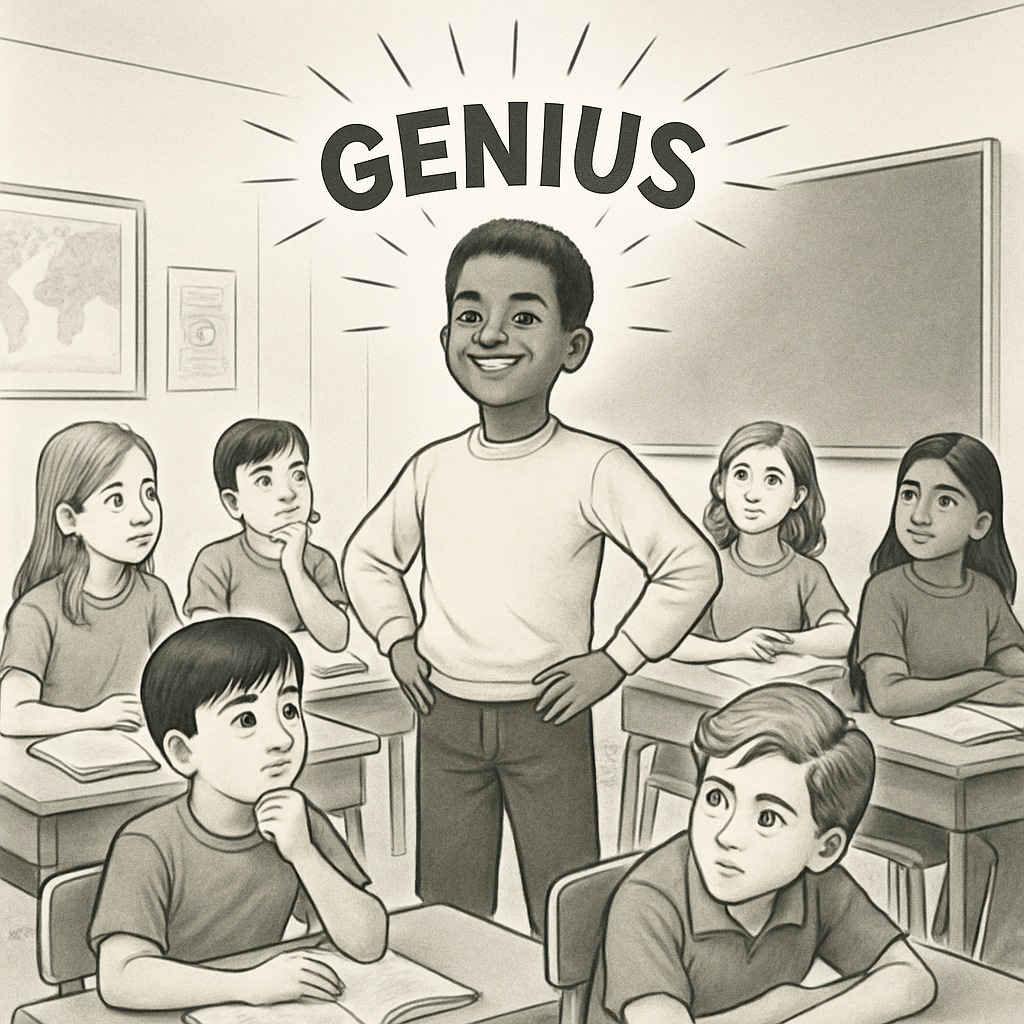The “genius” label in the education system, often intended as a mark of excellence, can become a double-edged sword. While it may highlight exceptional academic talent, it also creates a psychological burden for the labeled students and fosters feelings of inadequacy among their peers. This dynamic within K-12 education raises critical concerns about social expectations and the long-term impact on mental health. As a result, this well-meaning designation often leads to a system where no one truly benefits.

The Double-Edged Sword of the Genius Label
Being labeled a “genius” may initially seem like an achievement, but its implications often extend far beyond recognition. For the students receiving this label, the stakes are raised exponentially. They are expected to consistently perform at an extraordinary level, leaving little room for failure or imperfection. Over time, this can lead to anxiety, burnout, and even impostor syndrome—a condition where high-achieving individuals doubt their abilities and fear being exposed as “frauds.”
Conversely, students who are not labeled as geniuses may struggle with feelings of exclusion or inferiority. These students often internalize the belief that they are “less capable,” which can diminish their motivation and lead to a fixed mindset—a belief that intelligence and abilities are static and unchangeable. Studies have shown that such perceptions can have a lasting impact on self-esteem and academic performance. Learn more about impostor syndrome on Britannica.
How Social Expectations Amplify the Pressure
The societal glorification of genius often exacerbates the psychological strain on students. Parents, teachers, and peers alike may unintentionally contribute to the problem by holding the labeled student to unrealistic standards. These heightened expectations create a performance-based identity, where the student’s sense of self-worth becomes tied to their achievements rather than their inherent value as individuals.
Moreover, the education system itself frequently reinforces this divide. Gifted programs and exclusive opportunities for “genius” students can alienate their peers, creating a competitive environment that prioritizes accolades over collaboration. This fosters a culture where students view their worth in relation to others, rather than focusing on personal growth and learning. For additional insights, the Wikipedia entry on gifted education provides a useful overview.

Building a Healthier, More Inclusive Learning Environment
To mitigate the negative effects of the genius label, educators and parents must adopt strategies that prioritize mental health and inclusivity. Here are some actionable steps:
- Focus on effort over talent: Emphasize the value of hard work and growth rather than innate ability. This helps students develop a growth mindset, which has been shown to improve resilience and motivation.
- Create inclusive opportunities: Design programs that allow all students to explore their strengths and interests, rather than limiting resources to a select few.
- Encourage self-reflection: Teach students to value personal progress and self-awareness, helping them develop a well-rounded sense of identity.
- Provide mental health support: Ensure that school counselors and psychologists are accessible to all students, offering resources to cope with stress and anxiety.
By implementing these changes, schools can create an environment where every student feels valued and supported, regardless of whether they carry the “genius” label.
Conclusion: Redefining Achievement in Education
The “genius” label, despite its seemingly positive connotations, often leads to unintended consequences that affect both the labeled students and their peers. By perpetuating unrealistic expectations and fostering a culture of comparison, it undermines the very purpose of education: to nurture well-rounded, confident individuals. Moving forward, educators and parents must critically evaluate the impact of such labels and work toward a more inclusive and supportive system. Only by doing so can we ensure that every student has the opportunity to thrive both academically and emotionally.
Readability guidance: This article uses short paragraphs, clear headers, and lists to summarize key points. Active voice and transitional phrases ensure a smooth flow of ideas, while technical terms are explained in simple language for broader accessibility.


